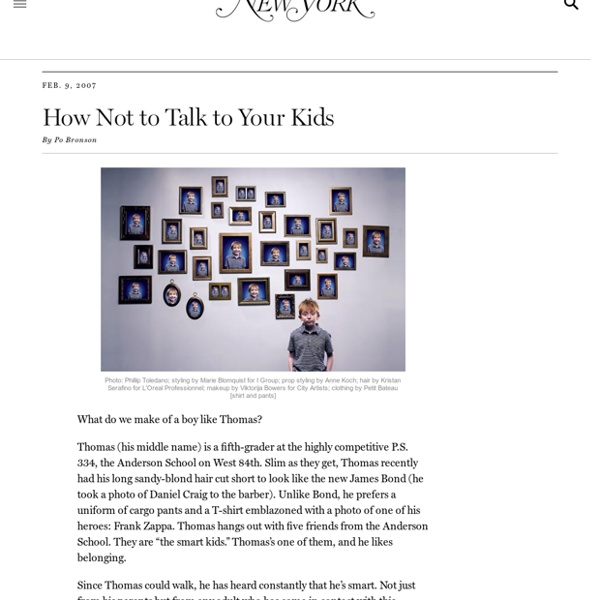The Power (and Peril) of Praising Your Kids

https://nymag.com/news/features/27840/
Related: surani
• sah00000
• batistonf
• III.How to talk to young children
• English in Early Childhood
Schemas in Children’s Play - N a t u r e P l a y
Written by Clare CaroSchemas in Children’s Play are such an important concept when it comes to the development of our children that it’s worth taking the time to understand them so you can facilitate them when you see them.What are these schemas?Well it’s really a fancy word for the urges that children have to do things like climb, throw things and hide in small places. They appear through play; perhaps it is the way they choose to do things, or what they desperately need to do out of the blue! Bringing It All TogetherAfter looking at each schema individually to get to grips with what each 'urge' is all about we may already be able to recognise some of the different ways they can appear in your child.Rotation, Trajectory, Enveloping, Orientation, Positioning, Connection, Enclosure/Container, Transporting and Transformation are urges that show in all children starting as early as their first birthday, some times before.How Can Knowing About These Urges Help Us?
What to consider when teaching English in large classes
How many students do you teach? Do you feel that your classes are too big? Author and education consultant Jason Anderson looks at the issues and offers some potential solutions. For many of us, our classes are larger than we would like them to be.
Let’s lose the ADHD label and find the child
When I trained as a primary school teacher 15 years ago, these were some of the words used to describe children with ADHD: ‘Difficult.’ ‘Challenging.’ ‘Disruptive.’ There were others, whispered by harassed-looking teachers in the staffroom or concerned parents at the school gates, but none seemed to be positive.
Schema and Fairies
Schemas are one of those things that divide practitioners, like fairies at the bottom of the garden. You either believe in them and are in absolute awe at how amazing they are, or you just don’t believe they exist. It’s really interesting when you discuss this with people and it’s extra exciting when a ‘non-believer’ suddenly says “That describes my key child exactly!!”
How can parents and teachers best educate young children?
What principles can both teachers and parents bring to the education of very young children? Gillian Craig, who was part of the Learning Time with Shaun and Timmy writing team, explains. As teachers and parents, we follow certain principles in our roles. Often though, these principles overlap and all we need to do is recognise and reinforce these areas. Ask (the right) questions
FAQ: Raising Bilingual Children
Why want bilingual children? There are many reasons, but the two most common are: 1) The parents speak different languages (say, an American woman and a Turkish man). 2) The parents speak the same language, but live in a community where most people speak something else (say, a Korean couple living in the USA).
Importance of play for babies & children
Australian Government Department of Education and Training (2009). Belonging, being and becoming: The early years learning framework for Australia. Canberra: Commonwealth of Australia. Retrieved 19 June 2019 from Cole-Hamilton, I. (2011).
The Brain-Changing Power of Conversation
The Science Researchers used highly faithful audio recorders — a system called Language Environment Analysis (known as LENA) — to capture every word spoken or heard by 36 4–6 year olds from various socioeconomic backgrounds over two full days. The recordings were analyzed to measure the number of words spoken by each child, the number of words spoken to each child, and the number of conversational turns — back-and-forth exchanges initiated by either adult or child.
Related:



